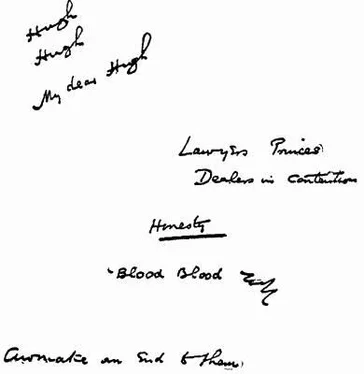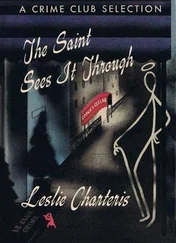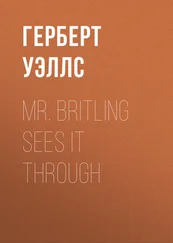Herbert Wells - Mr. Britling Sees It Through
Здесь есть возможность читать онлайн «Herbert Wells - Mr. Britling Sees It Through» весь текст электронной книги совершенно бесплатно (целиком полную версию без сокращений). В некоторых случаях можно слушать аудио, скачать через торрент в формате fb2 и присутствует краткое содержание. Жанр: Классическая проза, на английском языке. Описание произведения, (предисловие) а так же отзывы посетителей доступны на портале библиотеки ЛибКат.
- Название:Mr. Britling Sees It Through
- Автор:
- Жанр:
- Год:неизвестен
- ISBN:нет данных
- Рейтинг книги:4 / 5. Голосов: 1
-
Избранное:Добавить в избранное
- Отзывы:
-
Ваша оценка:
- 80
- 1
- 2
- 3
- 4
- 5
Mr. Britling Sees It Through: краткое содержание, описание и аннотация
Предлагаем к чтению аннотацию, описание, краткое содержание или предисловие (зависит от того, что написал сам автор книги «Mr. Britling Sees It Through»). Если вы не нашли необходимую информацию о книге — напишите в комментариях, мы постараемся отыскать её.
Mr. Britling Sees It Through — читать онлайн бесплатно полную книгу (весь текст) целиком
Ниже представлен текст книги, разбитый по страницам. Система сохранения места последней прочитанной страницы, позволяет с удобством читать онлайн бесплатно книгу «Mr. Britling Sees It Through», без необходимости каждый раз заново искать на чём Вы остановились. Поставьте закладку, и сможете в любой момент перейти на страницу, на которой закончили чтение.
Интервал:
Закладка:
All Mr. Britling's mental existence was soon threaded on the war. His more or less weekly Times leader became dissertations upon the German point of view; his reviews of books and Literary Supplement articles were all oriented more and more exactly to that one supreme fact....
It was rare that he really seemed to be seeing the war; few people saw it; for most of the world it came as an illimitable multitude of incoherent, loud, and confusing impressions. But all the time he was at least doing his utmost to see the war, to simplify it and extract the essence of it until it could be apprehended as something epic and explicable, as a stateable issue....
Most typical picture of all would be Mr. Britling writing in a little circle of orange lamplight, with the blinds of his room open for the sake of the moonlight, but the window shut to keep out the moths that beat against it. Outside would be the moon and the high summer sky and the old church tower dim above the black trees half a mile away, with its clock—which Mr. Britling heard at night but never noted by day—beating its way round the slow semicircle of the nocturnal hours. He had always hated conflict and destruction, and felt that war between civilised states was the quintessential expression of human failure, it was a stupidity that stopped progress and all the free variation of humanity, a thousand times he had declared it impossible, but even now with his country fighting he was still far from realising that this was a thing that could possibly touch him more than intellectually. He did not really believe with his eyes and finger-tips and backbone that murder, destruction, and agony on a scale monstrous beyond precedent was going on in the same world as that which slumbered outside the black ivy and silver shining window-sill that framed his peaceful view.
War had not been a reality of the daily life of England for more than a thousand years. The mental habit of the nation for fifty generations was against its emotional recognition. The English were the spoilt children of peace. They had never been wholly at war for three hundred years, and for over eight hundred years they had not fought for life against a foreign power. Spain and France had threatened in turn, but never even crossed the seas. It is true that England had had her civil dissensions and had made wars and conquests in every part of the globe and established an immense empire, but that last, as Mr. Britling had told Mr. Direck, was "an excursion." She had just sent out younger sons and surplus people, emigrants and expeditionary forces. Her own soil had never seen any successful foreign invasion; her homeland, the bulk of her households, her general life, had gone on untouched by these things. Nineteen people out of twenty, the middle class and most of the lower class, knew no more of the empire than they did of the Argentine Republic or the Italian Renaissance. It did not concern them. War that calls upon every man and threatens every life in the land, war of the whole national being, was a thing altogether outside English experience and the scope of the British imagination. It was still incredible, it was still outside the range of Mr. Britling's thoughts all through the tremendous onrush and check of the German attack in the west that opened the great war. Through those two months he was, as it were, a more and more excited spectator at a show, a show like a baseball match, a spectator with money on the event, rather than a really participating citizen of a nation thoroughly at war....
§ 13
After the jolt of the food panic and a brief, financial scare, the vast inertia of everyday life in England asserted itself. When the public went to the banks for the new paper money, the banks tendered gold—apologetically. The supply of the new notes was very insufficient, and there was plenty of gold. After the first impression that a universal catastrophe had happened there was an effect as if nothing had happened.
Shops re-opened after the Bank Holiday, in a tentative spirit that speedily became assurance; people went about their business again, and the war, so far as the mass of British folk were concerned, was for some weeks a fever of the mind and intelligence rather than a physical and personal actuality. There was a keen demand for news, and for a time there was very little news. The press did its best to cope with this immense occasion. Led by the Daily Express , all the halfpenny newspapers adopted a new and more resonant sort of headline, the streamer, a band of emphatic type that ran clean across the page and announced victories or disconcerting happenings. They did this every day, whether there was a great battle or the loss of a trawler to announce, and the public mind speedily adapted itself to the new pitch.
There was no invitation from the government and no organisation for any general participation in war. People talked unrestrictedly; every one seemed to be talking; they waved flags and displayed much vague willingness to do something. Any opportunity of service was taken very eagerly. Lord Kitchener was understood to have demanded five hundred thousand men; the War Office arrangements for recruiting, arrangements conceived on a scale altogether too small, were speedily overwhelmed by a rush of willing young men. The flow had to be checked by raising the physical standard far above the national average, and recruiting died down to manageable proportions. There was a quite genuine belief that the war might easily be too exclusively considered; that for the great mass of people it was a disturbing and distracting rather than a vital interest. The phase "Business as Usual" ran about the world, and the papers abounded in articles in which going on as though there was no war at all was demonstrated to be the truest form of patriotism. "Leave things to Kitchener" was another watchword with a strong appeal to the national quality. "Business as usual during Alterations to the Map of Europe" was the advertisement of one cheerful barber, widely quoted....
Hugh was at home all through August. He had thrown up his rooms in London with his artistic ambitions, and his father was making all the necessary arrangements for him to follow Cardinal to Cambridge. Meanwhile Hugh was taking up his scientific work where he had laid it down. He gave a reluctant couple of hours in the afternoon to the mysteries of Little-go Greek, and for the rest of his time he was either working at mathematics and mathematical physics or experimenting in a little upstairs room that had been carved out of the general space of the barn. It was only at the very end of August that it dawned upon him or Mr. Britling that the war might have more than a spectacular and sympathetic appeal for him. Hitherto contemporary history had happened without his personal intervention. He did not see why it should not continue to happen with the same detachment. The last elections—and a general election is really the only point at which the life of the reasonable Englishman becomes in any way public—had happened four years ago, when he was thirteen.
§ 14
For a time it was believed in Matching's Easy that the German armies had been defeated and very largely destroyed at Liège. It was a mistake not confined to Matching's Easy.
The first raiding attack was certainly repulsed with heavy losses, and so were the more systematic assaults on August the sixth and seventh. After that the news from Liège became uncertain, but it was believed in England that some or all of the forts were still holding out right up to the German entry into Brussels. Meanwhile the French were pushing into their lost provinces, occupying Altkirch, Mulhausen and Saarburg; the Russians were invading Bukovina and East Prussia; the Goeben , the Breslau and the Panther had been sunk by the newspapers in an imaginary battle in the Mediterranean, and Togoland was captured by the French and British. Neither the force nor the magnitude of the German attack through Belgium was appreciated by the general mind, and it was possible for Mr. Britling to reiterate his fear that the war would be over too soon, long before the full measure of its possible benefits could be secured. But these apprehensions were unfounded; the lessons the war had in store for Mr. Britling were far more drastic than anything he was yet able to imagine even in his most exalted moods.
Читать дальшеИнтервал:
Закладка:
Похожие книги на «Mr. Britling Sees It Through»
Представляем Вашему вниманию похожие книги на «Mr. Britling Sees It Through» списком для выбора. Мы отобрали схожую по названию и смыслу литературу в надежде предоставить читателям больше вариантов отыскать новые, интересные, ещё непрочитанные произведения.
Обсуждение, отзывы о книге «Mr. Britling Sees It Through» и просто собственные мнения читателей. Оставьте ваши комментарии, напишите, что Вы думаете о произведении, его смысле или главных героях. Укажите что конкретно понравилось, а что нет, и почему Вы так считаете.






